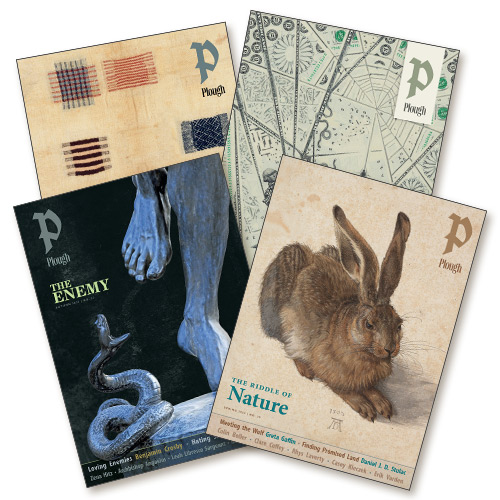Subtotal: $
Checkout

The remarkable story of a former private tutor to North Korea’s ruling family. While on a visit to Moscow, circumstances forced Kim Hyun-Sik to...




Dear Reader,
It’s rare for a national leader to court political risk in order to help strangers. Yet that’s what Angela Merkel, chancellor of Germany, did in September when she opened her country’s borders to refugees from the Middle East, especially Syria.
Merkel’s actions weren’t purely selfless, of course, but based in part on political and national interests. And German cities and villages must now house up to 1.5 million newcomers by year’s end, sorely testing the public’s acceptance and goodwill. All the same, this was a brave decision carrying real moral clarity. It showed the world what mercy looks like.
“Blessed are the merciful, for they shall obtain mercy.” Jesus’ words cut through our excuses, mixed motives, and timidities. Of course, caution has its place; many public policy questions are complicated. What’s not complicated is the desperation of families fleeing terror in Syria, Iraq, and Afghanistan. In cases like these, mercy is easy to recognize – as is the lack of it.
What would it look like if the United States followed Germany’s lead and offered mercy to the throngs of Central Americans, many fleeing horrific violence, who seek to cross our southern border? No doubt this would involve risk, expense, and disruption to our way of life. Yet Jesus’ words hardly leave Christians the choice of looking away. (See Tolstoy’s story, “Three Questions.”) Couldn’t the challenge of mercy draw out what is noblest in our traditions and in our youth?

Mercy, surely, doesn’t stop there. To take a few examples, what does mercy look like in relation to the 2.2 million people being held in US prisons and jails? Or the working poor unable to adequately care for their families? Or the millions of children paying the bitter price of the sexual revolution and its erosion of lifelong marriage between a child’s father and mother?
Pope Francis, who has brought many of these concerns to the world’s attention, has announced a Jubilee Year of Mercy starting December 8, 2015: “We are called to show mercy because mercy has first been shown to us. Pardoning offences becomes the clearest expression of merciful love, and for us Christians it is an imperative from which we cannot excuse ourselves.”
Nowhere is mercy more concrete than in the act of forgiving, as shown by stories from North Korea, New York, and Auschwitz. Is there anything that cannot be forgiven? That’s the question that Hanna-Barbara Gerl-Falkovitz grapples with in her essay.
God’s limitless mercy showed itself in flesh and blood in the birth of Jesus. In all we do in 2016, may we make his priorities our own. To our readers who have encouraged us and pointed us in this direction over the past year, our sincere thanks.
Warm greetings,
Peter Mommsen,
Editor
Cover photograph by Sean Gallup / Getty Images. Painting by Camille Pissarro, Père Melon Cutting Wood.

Plough is an award-winning international magazine of stories, ideas, and culture that appears weekly online and quarterly in print. We also publish a line of books, including literary nonfiction, fiction, and graphic novels. Founded in 1920, Plough asks the big questions: How can we live well together, and what gives life meaning and purpose in a complex world?